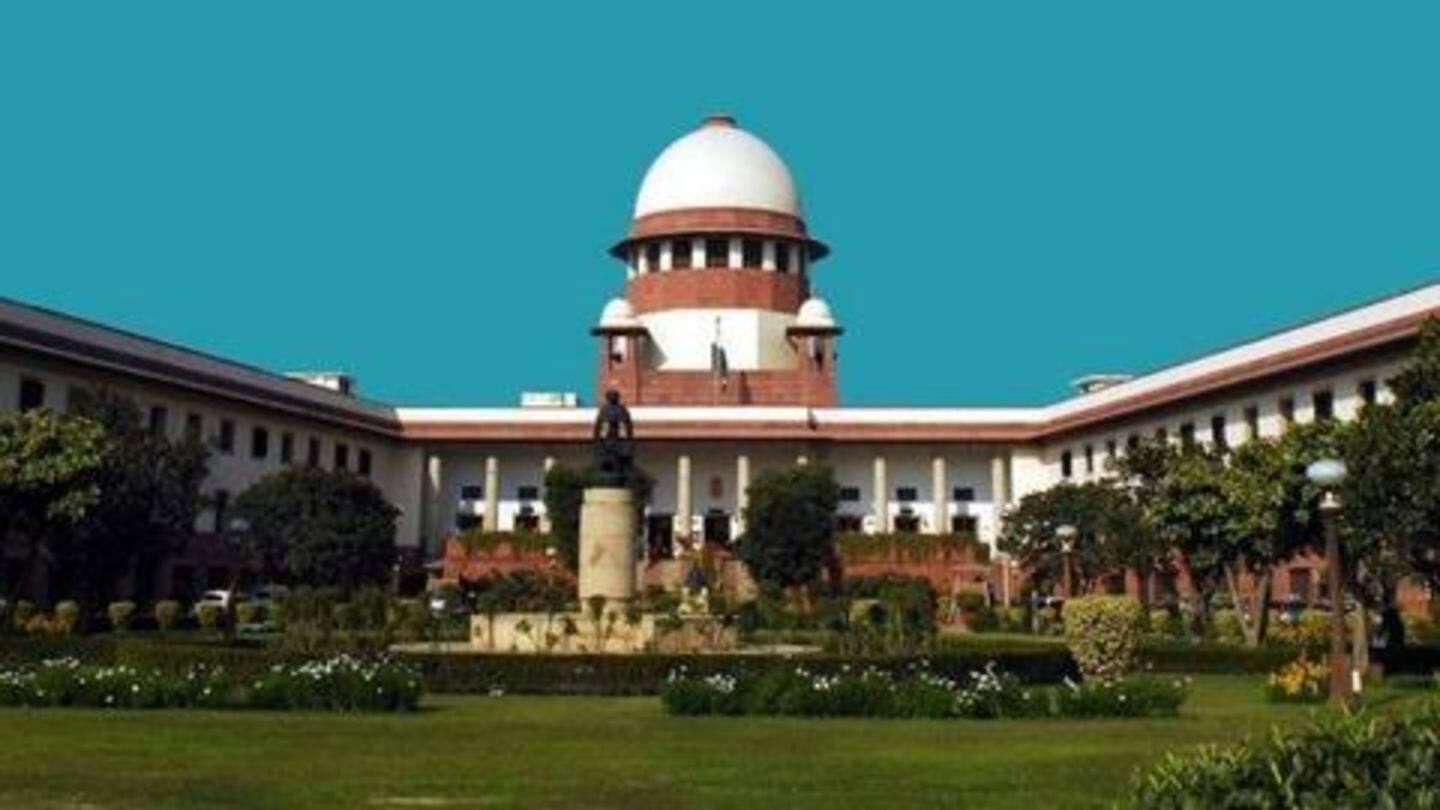
#ThatWas2018: 6 Supreme Court verdicts that changed India in 2018
What's the story
If 2018 can be summed up for India in a phrase, it would be called the 'year of reforms'. At the centre of it all was the Supreme Court, which ushered in reform across multiple sectors, striking down dated, draconian legislation, and paving way for new, progressive ones. With 2018 coming to an end, here's a look at the apex court's landmark verdicts.
Section 377
2018 saw India's LGBT community be recognized as equal citizens
2018 saw the LGBT community in India be recognized as equal citizens. In September, the Supreme Court read down the draconian, 158-year-old Section 377 of the Indian Penal Code (IPC) that deemed gay sex to be 'unnatural' and a criminal offense. While giving the verdict, then CJI Dipak Misra declared that the LGBT community would enjoy equal rights. However, sex with children and criminals remains an offense.
Sabarimala
An 800-year-old sexist tradition was quashed by the apex court
In another instance of doing away with draconian rules, the Supreme Court, in late September quashed an 800-year-old rule that prevented women of menstrual age from entering the holy Sabarimala temple in Kerala. While the SC played its part in ushering in legislative reform, the issue remains a contentious one, and no woman of the aforementioned age group has made it to the temple yet. It remains to be seen whether the state can enforce the SC's verdict.
Section 497
The Supreme Court also decriminalized adultery
September was indeed a busy month for the SC as yet another dated, draconian law was struck down. The apex court struck down Section 497 of the IPC - a 158-year-old law that criminalized adultery, and held only men liable for the same. While decriminalizing adultery, the apex court noted that criminalizing adultery would amount to punishing unhappily married people, and that in itself would be unconstitutional. However, adultery can still be a ground for divorce.
Aadhaar
Aadhaar remains constitutionally valid, but its use has been restricted
Another headline-grabbing verdict the SC delivered was on the constitutional validity of Aadhaar. While the apex court upheld the constitutional validity of Aadhaar, it restricted Aadhaar's use. As it stands, Aadhaar-linking remains mandatory for filing for PAN, and income tax returns, and for availing of government benefits and subsidies. However, the SC made Aadhaar non-mandatory for a host of other services, including opening of bank accounts, getting new SIM cards, school admissions etc.
Euthanasia
Passive euthanasia and 'living will' were legalized this year
While the aforementioned verdicts grabbed headlines, there were a clutch of other reformative verdicts given by the apex court. One with lasting implications was the SC's verdict on passive euthanasia. In March this year, the apex court legalized passive euthanasia, and 'living will', under which a healthy person could, in advance, choose to opt out of life support if they fell into an irreversible coma. While giving its verdict, the SC observed that human beings had a "right to die with dignity".
Mob violence
The Supreme Court had come down heavily on mob violence
Taking into account increasing incidents of extra-judicial mob violence in India, the Supreme Court directed that India should not devolve to a 'mobocracy'. To clamp down against incidents of mob violence, the Supreme Court prescribed a slew of measures for the Center, including fast-track trials, victim compensation, deterrent punishment, and action against lax law enforcement officials. "The horrendous acts of mobocracy cannot be permitted to inundate the law of the land," the SC had observed.